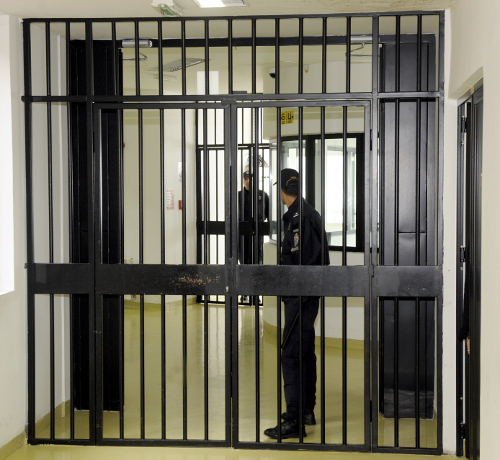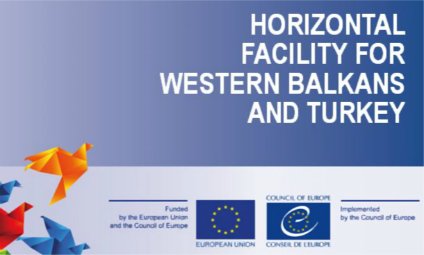Component 1: Alternative sanctions and community sanctions and measures (conditional release, community service and conditional sentence)
Conditional release

Along with the execution of other sanctions envisaged in the legislation, conditional release (also known as release on parole or parole) represents a measure that provides more effective rehabilitation of sentenced persons in the community and its use could reduce overcrowding in prisons. Conditional release at the State, entity and Brcko district level as currently applied, primarily allows for the prisoners' early release as a reward for their good behaviour and in many cases represents only a shortening of the sentence without consideration that the release is only conditional, and therefore perhaps may involve some risk. The prisoners on conditional release are not subject to supervision, with the exception of the cooperation between the Ministries of Justice and Interior in Republika Srpska. Without efficient supervision and support, the prisoners on conditional release have less chance of an effective rehabilitation and re-integration into society and the risk to society remains. The establishment of an efficient supervision of conditionally released prisoners and its further enhancing could be facilitated either by reinforcing co-operation with the Ministries of Interior or establishing probation service(s).
Previous work on the necessary amendments to the Criminal Codes and Laws on execution of criminal sanctions needs further embedding into the legislation and into the practice.
Publication of the Rules of Procedure regulating work of the Parole Boards in each BiH jurisdiction would make the process of applying for conditional release more transparent and would provide safeguards to applicants that the final decision was information based. The consolidation of the technical secretariats of the Parole Boards in terms of standardisation of their practices and competencies, as suggested through the above mentioned amendments, would ensure easier coordination of inputs coming from various stakeholders in the decision making process of the Parole Boards.
These two initiatives, together with improved exchange of information available to various stakeholders at different stages of the conditional release process, to be designed and piloted by technical secretariats, need to be agreed by policy makers. This project will aim to facilitate this agreement. It will, in turn lead to a more transparent decision making process in the conditional release scheme, better co-ordination and standardisation of practices in various BiH jurisdictions. Conditional release would no longer present only a shortening of the sentence but would fulfil its penological purpose of the phased and gradual reintegration of prisoners back into the society, their resocialisation and finally, it would help them lead the law abiding life.
Community service

Different provisions in the three Criminal Codes in BiH call for the development of an efficient coordination mechanism between policy makers at different levels that would ensure harmonisation of regulatory framework and practice. In daily lives, this harmonisation of regulatory framework and practice would enable offenders to do work for the benefit of their communities across BiH jurisdictions, regardless of their place of residence. It would also mean that all competent judicial authorities in BiH would impose community service measure foreseen in the legislation for certain types of offences and that all offenders would benefit from equal treatment and harmonised sanctioning policies. As the situation currently has it, offenders sanctioned for minor offences in Republika Srpska do not have the possibility of serving community service as those in the FBiH do.
Recommendations that emerged from the EU/CoE Joint Programme "Efficient Prison Management in BiH", strongly indicated a need for greater use of alternative sanctions compared to imprisonment.
The wider and targeted use of community service, in combination with conditional release, also contributes to the reduction of prison overcrowding and contributes to the reduction of crime in the community. Another argument in favour of a wider use of community service would be the considerable cost efficiency and savings expected to be made in the long run. To this extent, it would be useful to prepare a clear comparative analysis and breakdown of savings over a period of time or to use evidence from other jurisdictions. The analysis could comprise a case study of an offender and costs incurred if he was to serve a prison sentence in custody and community service at large.
The mandatory cooperation between public utilities companies and the implementing authority (the Ministry of Justice in case of BiH but in many countries the implementing authority is the probation service) in the implementation of community service should be complemented by a statutory framework for contractual relations between the implementing authority and potential private or third sector employers (agencies which provide work placement for offenders sentenced to perform community service).
The CoE remains committed to continuing to promote compliance with the Recommendations of the Committee of Ministers, specifically Rec (92) 16 on the European rules on community sanctions and measures and Rec (2000) 22 on improving the implementation of (Rec (92) 16). Both Recommendations specify the necessity to outreach to the public and media in an effort to point out that the adverse effects of imprisonment could be minimised by the greater use of community sanctions and measures. The usual concerns raised by the public when promoting community service such as lack of community infrastructure, budgetary limitations, and fewer contacts between governmental agencies and institutions dealing with community sanctions could be dealt with by the good practices of changing attitudes of outside agencies, mobilising the financial resources and networking. In some cases, these are only provisional arrangements but making progress nowadays can only be done step by step.
This Project builds upon the specific recommendations from the said JP applicable to this project component. The recommendations outlined the following necessities:
- Amendment of the RS Criminal Code in order to harmonize the provisions in the entity and state laws and by-laws in this area
- Defining more clearly the alternative sanction of community service through the regulations or by passing a special law
- Prescribing and defining supervision of the enforcement of community service
- Creating the list of legal entities working in the public interest where community service could be enforced
All of the above proposed can be complemented and tested in practice for its viability by a pilot project designed and implemented in the jurisdictions that have fully met all the necessary preconditions by developing the regulatory framework and setting up the necessary facilities for the enforcement of community service.
Conditional (suspended) sentence

The suspended sentence with protective supervision is not a sanction independent of the suspended sentence. The same conditions have to be fulfilled for both to be imposed. It is intended for offenders whose personal circumstances are conducive to reoffending, who require special assistance and supervision in order to achieve the purpose of punishment. The execution of any measures imposed by the court with regard to the circumstances which lead to offending, is constantly supervised by a special authority which is required to report to the court on the results of the enforcement.
The criminal justice legislation in BiH puts the conditional sentence in the almost exclusive competence of the judicial authorities. According to the provisions of the Criminal Codes in BiH, the court imposes the sentence but withholds its execution as long as the defendant does not commit any crimes during the prescribed period of time. Once the time passes without incident, the penalty is discharged. If, however, the defendant commits another crime, the court is entitled to revoke the suspension and have the defendant serve the prison sentence. Laws on execution of criminal sanctions in BiH, in a more or less harmonised manner, regulate enforcement of the suspended sentence with protective supervision.
The purpose of the supervision is to provide assistance, care, supervision and protection thereby helping the offenders to re-settle in the community and making themselves again feel comfortable in it. The supervision measure, according to the Law on the execution of criminal sanctions, should be executed by the municipal social welfare authority with jurisdiction at the place of temporary or permanent residence of the offender. Practice established by the Republika Srpska Law on Execution of Criminal Sanctions (RS LECS) whereby the municipal social welfare authority draws up an action plan or work plan for the individual offender while the supervision should be taken onboard in other pieces of legislation at different levels as well.
The rate of use of suspended sentence is relatively high in BiH (almost 40-60% of all the sanctions imposed in municipal courts). With the suspended sentence with protective supervision, the situation differs considerably. It is imposed very seldom, one of the main reasons being the government's failure to implement the adequate protective supervision.
Therefore, it is recommended to bring together a wider range of policy makers at different levels to discuss and agree on the feasible and practically implementable solutions to organise protective supervision for persons with a suspended sentence. This forum should produce an agreement on the common and harmonised legal framework with clearly identified stakeholders in the implementing scheme. Legal framework should be developed within the project and it constitutes a good basis for further development of operational procedures. The operational procedures developed within the framework of the project should be the final precondition met for the increased use of conditional sentence.

